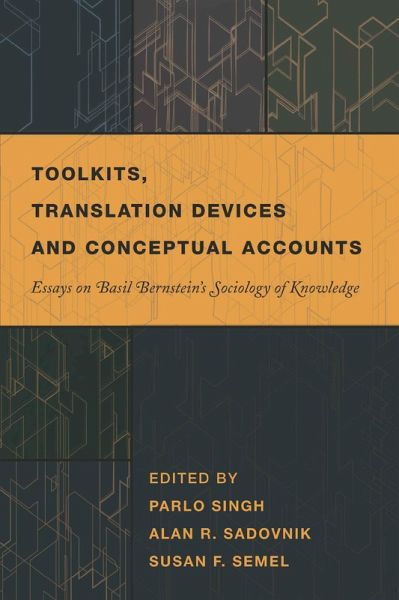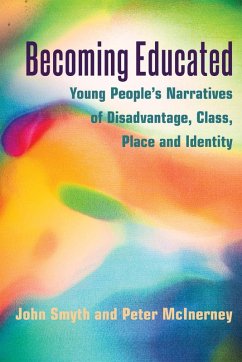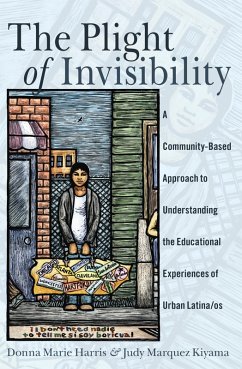
Toolkits, Translation Devices and Conceptual Accounts (eBook, PDF)
Essays on Basil Bernstein's Sociology of Knowledge
Versandkostenfrei!
Sofort per Download lieferbar
Statt: 44,45 €**
36,95 €
inkl. MwSt.
**Preis der gedruckten Ausgabe (Broschiertes Buch)
Alle Infos zum eBook verschenkenWeitere Ausgaben:

PAYBACK Punkte
18 °P sammeln!
For over four decades, Basil Bernstein researched 'the internal organisation and educational context of the school' specifically, and educational systems generally. In particular, he was interested in the powerful forms of knowledge transmitted through schooling systems; who gained access to these forms of knowledge; how they did so; and with what consequences. His research began by examining the differences between language and communication patterns in the institutions of the home/family and of the school, and extended to examining the structuring of pedagogic discourse from the level of the...
For over four decades, Basil Bernstein researched 'the internal organisation and educational context of the school' specifically, and educational systems generally. In particular, he was interested in the powerful forms of knowledge transmitted through schooling systems; who gained access to these forms of knowledge; how they did so; and with what consequences. His research began by examining the differences between language and communication patterns in the institutions of the home/family and of the school, and extended to examining the structuring of pedagogic discourse from the level of the state to the classroom.
This collection brings together chapters by researchers from South Africa, Portugal, the United Kingdom, United States, and Australia, to build on the theoretical concepts developed by Bernstein to explore issues of access and acquisition to school knowledge. In addition, contributors explore the strengths and limitations of Bernstein's work for understanding the structuring of educational institutions, as well as the potential of the theory for assisting educators to make a difference in the lives of students.
This collection brings together chapters by researchers from South Africa, Portugal, the United Kingdom, United States, and Australia, to build on the theoretical concepts developed by Bernstein to explore issues of access and acquisition to school knowledge. In addition, contributors explore the strengths and limitations of Bernstein's work for understanding the structuring of educational institutions, as well as the potential of the theory for assisting educators to make a difference in the lives of students.
Dieser Download kann aus rechtlichen Gründen nur mit Rechnungsadresse in A, D ausgeliefert werden.













